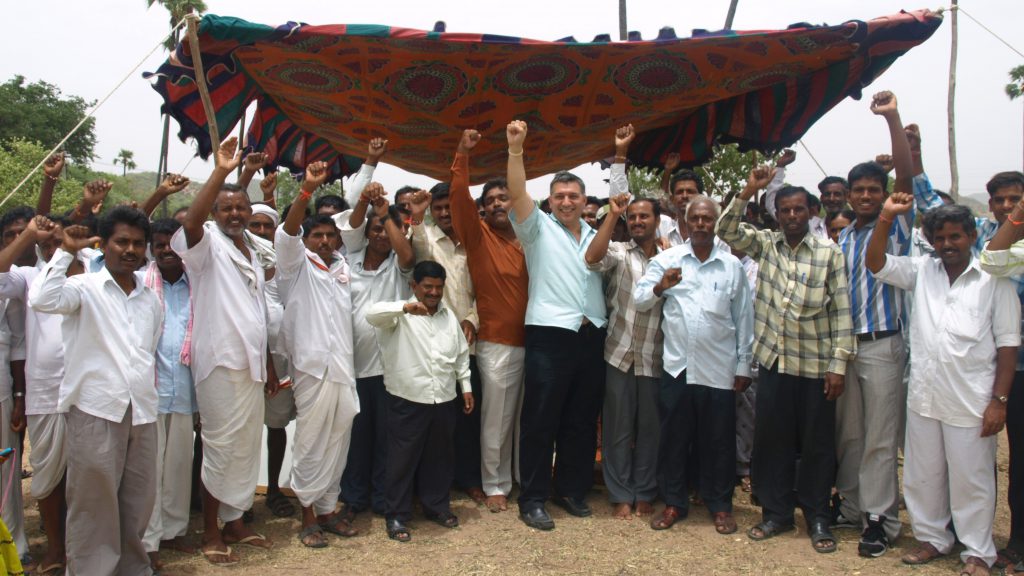Nick Savaidis’ first lessons in ethical garment making were learned as a child in the 1960s, watching his mother’s daily routine as a seamstress in their Melbourne home. It was an education he never forgot.
“I went to a shop in Collins Street and I saw stuff that mum had made. It was going for 40 or 50 dollars but she had been paid 15 or 20 cents for it. I thought that sucked … “
“Like so many migrant mothers in those days, mine was a machinist from home. In our lounge room, the Singer sewing machine was next to the TV, and a big pile of fabric that would be delivered every day,” says Savaidis.
“When I was 10 or 11, I went to a shop in Collins Street and I saw stuff that mum had made. It was going for 40 or 50 dollars but she had been paid 15 or 20 cents for it. I couldn’t work out how she could be paid so little while they were sold for so much. I thought that sucked as a kid.”
With the family struggling financially at that time, the Savaidis family lost their Thornbury home because they couldn’t make the repayments. It was a tough time – and an experience shared with thousands of other migrants from southern Europe following the peak of mass migration to Australia.
Almost 40 years later Savaidis founded Etiko, the Melbourne-based business that specialises in developing and marketing sustainably produced, eco-friendly clothing, footwear and sports goods.
Rated the country’s most ethical fashion brand by the Australian Fashion Report in 2013, the company’s name was inspired by Savaidis’ spin on US multinational Nike.
“It always pissed me off that Nike – the brand that is renowned for sweatshops – had based its name on the Greek word for victory. I thought I’d twist that idea and use the Greek word for ethical. That’s how we came up with Etiko.”

Since launching in 2005, the company’s achievements include being the first non-food brand to gain Fairtrade certification in Australia and New Zealand, as well as helping create hundreds of micro-businesses in South Asia as part of its supply chain.
A constant campaigner for the tens of thousands of poorly-paid workers in developing countries who produce for the large multinational brands, Savaidis says Etiko’s mission is to promote the idea of “conscious and conscientious consumerism”.
“It’s one thing to be aware of the issue of child labour, but conscientiousness means doing something about it.
“Fashion is cheaper now than it’s ever been and the reason for that is workers in developing countries are being exploited. In Bangladesh garment workers suffer so we can have cheap garments.
“I’ve always had empathy for the underdog,” says Savaidis. “I don’t like to see anyone being exploited, it doesn’t matter which part of the world.”









